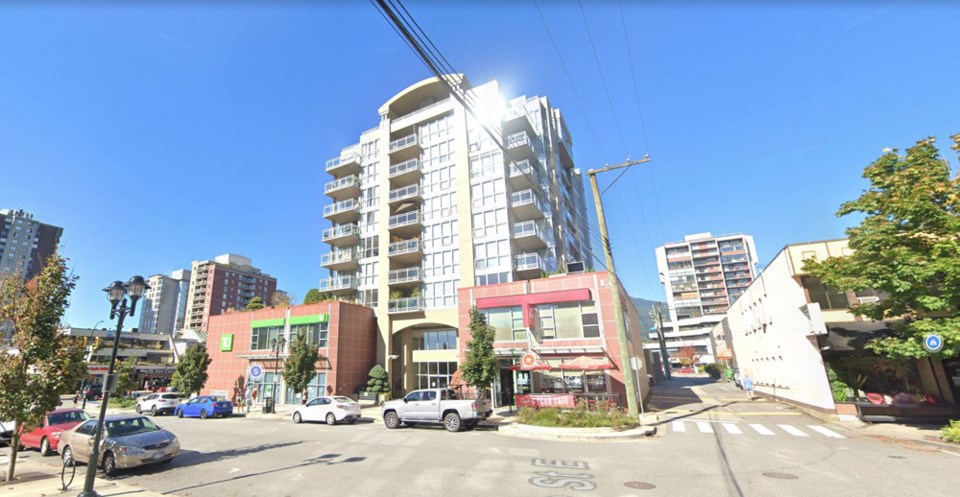A mixed-use North Vancouver condo building has been ordered to start sharing its visitor parking stalls with the property’s commercial businesses.
The commercial unit owners at the Piermont building, at 108 East 14th St., took their residential neighbours to the province’s Civil Resolution Tribunal after a dispute over who was entitled to park in the building’s nine visitor spots. The residential strata had placed signs at each of the stalls declaring “Residential Visitor Only,” according to a written decision handed down on Dec. 3.
The parking stalls have been common property for the building since it was built in 1999 but tribunal member Chad McCarthy noted the building bylaw’s definition of “resident” is so broad, it could be applied to commercial owners, tenants, or occupants as well.
“I find that unless the context of the bylaw requires a different interpretation, the word ‘resident’ includes an owner, tenant, or occupant of a strata lot in the commercial section,” he wrote. “I find that the strata bylaws do not limit visitor parking use to visitors of a particular section of the strata. I find that on their face, the strata bylaws permit a visitor to any strata lot in either section to use visitor parking."
In their arguments, both the residential and commercial owners cited the City of North Vancouver’s zoning bylaw, which states that multi-family buildings must provide 0.1 visitor parking stalls per dwelling unit. Residents took that to mean the spaces were for visitors to those dwelling units. But McCarthy said the city’s bylaw also doesn’t say anything about who may use those spots.
“The visitor parking spaces simply must be ‘available to visitors at all times’ without further qualification. In context, I find this does not restrict the visitor parking spaces’ use to visitors of ‘dwelling units’ or visitors of a particular strata section,” he wrote.
The residents also argued that permitting customers and staff to park in the visitor spaces would be a significant change to the use of the strata’s common property, which would require a three-quarters majority vote by strata members. McCarthy also rejected that argument.
“I find the strata’s suggestion that allowing commercial visitor parking would increase visitor parking use to a point where it would become unavailable to more residential visitors is speculative and unsupported by evidence,” he wrote. “So, I find the evidence does not show that allowing commercial visitors to park in visitor parking would negatively affect the use and enjoyment of any strata lots, cause disruption, or affect the value of any strata lots.”
McCarthy ordered the strata to remove the word “resident” from the “visitor only” parking signs and pay the commercial strata owners’ tribunal fees.



